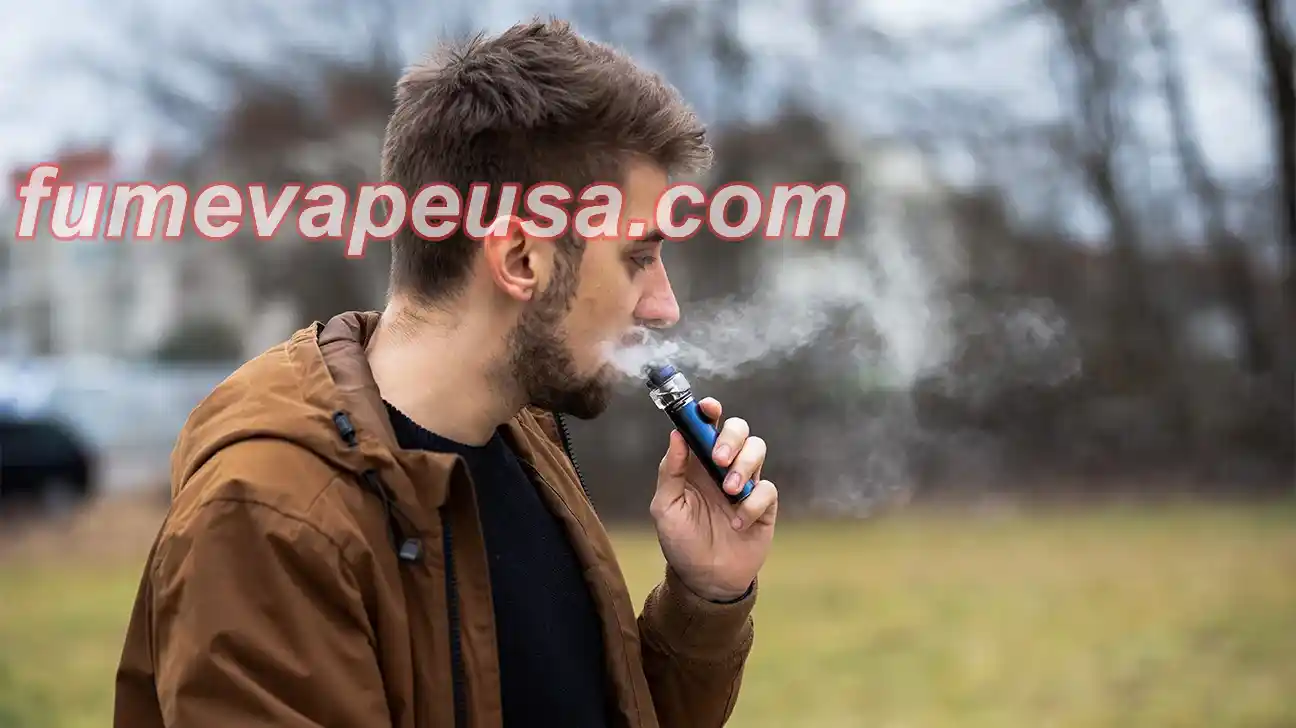Vaping Regulations 2025: New Laws Impacting Disposable Vapes, Flavored Vapes, and Sales Across the US and Europe
As 2025 kicks off, countries around the world are tightening their grip on the sale and distribution of vaping products, setting the stage for significant regulatory changes in the vaping industry. From the United States to Europe, new laws are now taking effect to address health concerns, environmental impact, and the rise of youth vaping. If you're into vaping, it's crucial to keep an eye on these developments, as they will reshape how and where you can access your favorite vape products. Let's dive into some of the key changes happening globally, particularly in the first quarter of 2025, and what they mean for both consumers and businesses in the vaping space.
1. Belgium Takes Bold Step to Ban Disposable Vapes
Starting January 1, 2025, Belgium became the first European Union country to enforce a nationwide ban on the sale of disposable vapes. This move is being hailed as a groundbreaking step in the EU's ongoing efforts to curb the growing number of young people getting hooked on nicotine. According to Belgian Health Minister Frank Vandenbroucke, disposable vapes, which are often cheap and come in a range of fruity flavors, are a primary gateway for teenagers to develop nicotine addiction.
Vandenbroucke emphasized that these products are designed to attract new users, especially minors, who might not otherwise be interested in smoking. "Disposable vapes are not only a health threat but an environmental disaster," he said, pointing out that the plastic, batteries, and chemicals in these devices end up in landfills and contribute to pollution.
As part of his broader campaign to protect public health, Vandenbroucke has called on other EU nations to adopt stricter tobacco and nicotine product regulations. The move is expected to spur discussions across Europe on how to regulate the vaping industry more effectively, particularly when it comes to products targeting young users.
2. Illinois Enacts Stricter Vaping Laws
On the heels of Belgium's historic decision, Illinois kicked off 2025 with its own set of vaping restrictions. Starting January 1, a new law will impose more severe limitations on how vaping products are marketed and advertised in the state. This law specifically targets advertisements that might confuse consumers into thinking vaping products are not tobacco-related, or that they are harmless alternatives to smoking.
In addition to limiting the marketing of these products, Illinois is also focused on enhancing regulations surrounding vape flavors and sales. This includes tighter controls on the types of products available in the state and additional measures to prevent youth access to these products. While the law's primary goal is to protect public health, it also aims to reduce the overall appeal of vaping among younger audiences who might be tempted by candy-like flavors. Want to learn more about vapes? fume vapes is your best choice!
3. Rhode Island Bans Flavored Vapes Starting January 1
Over in Rhode Island, a major shift in vaping policy took place as the state enacted a ban on the sale of flavored vape products, effective January 1, 2025. The new regulation prohibits retailers from selling flavored e-liquids or holding them with the intent to sell. This move is part of a larger push to curb vaping among young people, as studies have shown that flavored vapes are particularly attractive to teenagers.
Additionally, Rhode Island will introduce a new tax on vaping products. Disposable vapes will be taxed at 50 cents per milliliter, while refillable devices will face a 10% tax based on their wholesale price. This tax is expected to drive up the price of flavored vapes, which could reduce their availability and, in theory, discourage their use.
4. Latvia Tightens Regulations on Tobacco and Vaping Products
Latvia has also joined the ranks of countries tightening their vaping regulations. Starting January 2025, the Baltic nation will impose stricter controls on the sale of tobacco and nicotine products. The new laws will prohibit the sale of vaping products—including disposable vapes, refillable e-cigarettes, and nicotine pouches—to individuals under the age of 20. Moreover, vape flavors will be restricted to tobacco-only options, with other flavors being banned outright.
This move reflects growing concern over the health risks associated with vaping, especially among the youth population. The Latvian government is also putting more pressure on the EU to harmonize tobacco regulations across the continent to ensure a more unified approach to reducing smoking and vaping.
5. California Doubles Down on Flavored Vape Ban
California, the state that often leads the way in progressive policies, took significant action starting January 1, 2025, with a robust ban on flavored tobacco products. Under the new law, flavored vapes will no longer be available for purchase, and retailers who violate the law could face hefty fines and even jail time. The fines for selling or even possessing flavored vaping products could soar up to $20,000 per violation, and online retailers who ship these products will also be subject to fines as high as $5,000.
This initiative reflects California's ongoing commitment to curbing youth vaping. The state has one of the highest rates of youth vape use in the country, and policymakers are aiming to reduce this statistic with these stringent new rules. While some critics argue that these measures go too far, supporters believe that the ban will help combat nicotine addiction and its long-term health consequences for teenagers.
6. Iowa Delays Vape Sales Restrictions Amid Lawsuit
Iowa’s new vaping regulations, which were set to take effect on January 1, 2025, have been temporarily delayed due to a lawsuit filed by local vape manufacturers, distributors, and retailers. The lawsuit challenges the constitutionality of House File 2677, which requires all vaping products sold in the state to be registered with the FDA. The law also limits sales to only those products that are listed in the FDA’s approved registry.
While the lawsuit proceeds, Iowa has put the new vaping restrictions on hold, meaning retailers and consumers are still able to buy and sell vaping products as they did before. However, if the law is upheld, this could significantly change the vaping landscape in the state, especially for smaller retailers who may not be able to comply with the FDA’s registration requirements.
7. Utah Temporarily Halts Flavored Vape Ban
Utah was another state that attempted to ban flavored vapes in 2025, but like Iowa, it has encountered legal obstacles. A federal judge issued a temporary restraining order on January 1, 2025, putting the flavor ban on hold until further legal proceedings are completed. The lawsuit was brought by the Utah Vapor Business Association, which argues that the ban would have significant negative consequences for businesses in the state.
While the case is pending, flavored vapes remain legal in Utah, and the local vaping community is watching closely to see how this legal battle will unfold. It’s clear, however, that flavored vapes remain a hot-button issue in many states, and Utah is no exception to this trend.
8. Kentucky Limits Vape Product Availability
Kentucky is another state making moves to control youth vaping, with new laws that limit the availability of certain vaping products starting January 1, 2025. Under the new regulations, Kentucky will restrict the types of vaping products that can be sold in retail locations, particularly those aimed at minors. The new laws are part of a broader effort to curb the rise of youth vaping in the state and ensure the safety of existing products available on the market. Is fume vape safe?
9. Italy Extends Online Sales Ban for Nicotine Products
Italy has been steadily tightening its vaping regulations in recent years, and 2025 will be no different. A new law taking effect on January 1 will extend the country's ban on online sales of nicotine products. The regulation aims to ensure that nicotine products are sold only through approved retailers, preventing minors from easily purchasing them online. However, non-nicotine vaping products may still be available for online sale, although this remains an area of uncertainty.
10. Russia Raises Vape Tax Starting January 1
Russia has also decided to raise taxes on vaping products starting in 2025. The new tax increases the excise duty on nicotine products, including vapes, with the goal of generating more revenue for the government while discouraging excessive consumption. The tax on nicotine-containing liquids will rise to 42 rubles per milliliter (approximately 0.55 USD), marking a substantial increase compared to previous years. This move is expected to raise prices across the board and could impact the affordability of vaping products in Russia.
11. Indonesia Sees Vape Price Increases
Indonesia has also introduced price hikes on vaping products starting January 1, 2025. The price of open-system vape liquids will rise by 22%, while the cost of heated tobacco devices and pods will see smaller increases. The price adjustments reflect both higher production costs and regulatory changes in the country's approach to tobacco control.
A Look Ahead: The Global Shift Toward Stricter Vaping Regulations
As 2025 continues, the global trend toward more restrictive vaping regulations is unmistakable. From flavored vape bans to higher taxes and more stringent marketing regulations, governments worldwide are cracking down on the vaping industry in an effort to protect public health, particularly youth. While these changes may make it harder to access certain vape products, they also highlight the growing recognition of vaping as a public health concern.
For businesses in the vaping industry, staying ahead of these regulations is crucial. Compliance costs are rising, and those who can't keep up with new rules may be forced out of the market. Meanwhile, consumers will need to adapt to new product availability and pricing, with some regions seeing significant price hikes and product shortages.
Whether you're a teen looking to stay on top of the latest flavor trends, or a long-time vaper who's concerned about these new rules, the vaping landscape is undoubtedly changing. Stay informed, keep up with the latest developments, and be prepared for the next wave of regulations that may be coming to a state or country near you.
